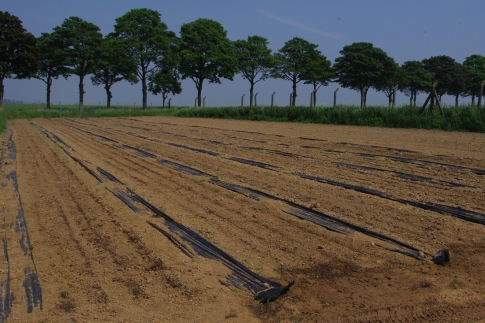News
2012-06-18
establishment of trees nurseries
The seeds of wild apple and pear (390 kg of apples which gave nearly 3,500 kg of seeds and 134 kg of wild pears which gave 0.400 kg of seeds) harvested last fall spend the winter in the fridge from the forestry office in Marche en Famenne, mixed with moist vermiculite.
This treatment allows reproducing the winter conditions (cool and humidity) in a refrigerator and thus promoting seed germination with the so-called "dormancy". The advantage of this method over a conventional seeding in the fall is, among others; to protect the seeds from external aggression always possible in nature (field mice, nematodes, birds, fungi, etc ....).
At the very end of April, the first seeds appeared timidly in seed lots. Unfortunately the weather, particularly wet this year, did not prepare the soil in the three nurseries in order to host the seeds (Nassogne, Michamps and Ath).
A race against time to plant as soon as weather will allow land preparation, the good condition was collected mid-May.
Plowing and milling were done and from the 20th of May the seedlings could be started within the three nurseries.
Furrows spaced about a foot were done. 20 to 30 seeds per meter were sown in the furrows and covered with soil or sawdust (to protect the seeds already sprouting against the action of sunlight and to allow visualizing the lines for hoeing the plots before seedling emergence if necessary). We planted a total of 3.7 km in linear and full few acres (where these shrubs should be planted in autumn).
Manual seedling was performed for seed with an advanced germination state. For others, small seeders were used to be regular.
The most mature seeds immediately sprouted out of the ground and the first lots currently planted (pear) are 4-leaf stage and appear already 3-4 centimeters high. Apple trees reveal their cotyledons and first leaves. Counts carried out show that over 90 percent of the first seedlings sprout.
A biodegradable ground cover is installed in the paths between the flower beds to prevent weed emergence and reduce the work of weeding.





